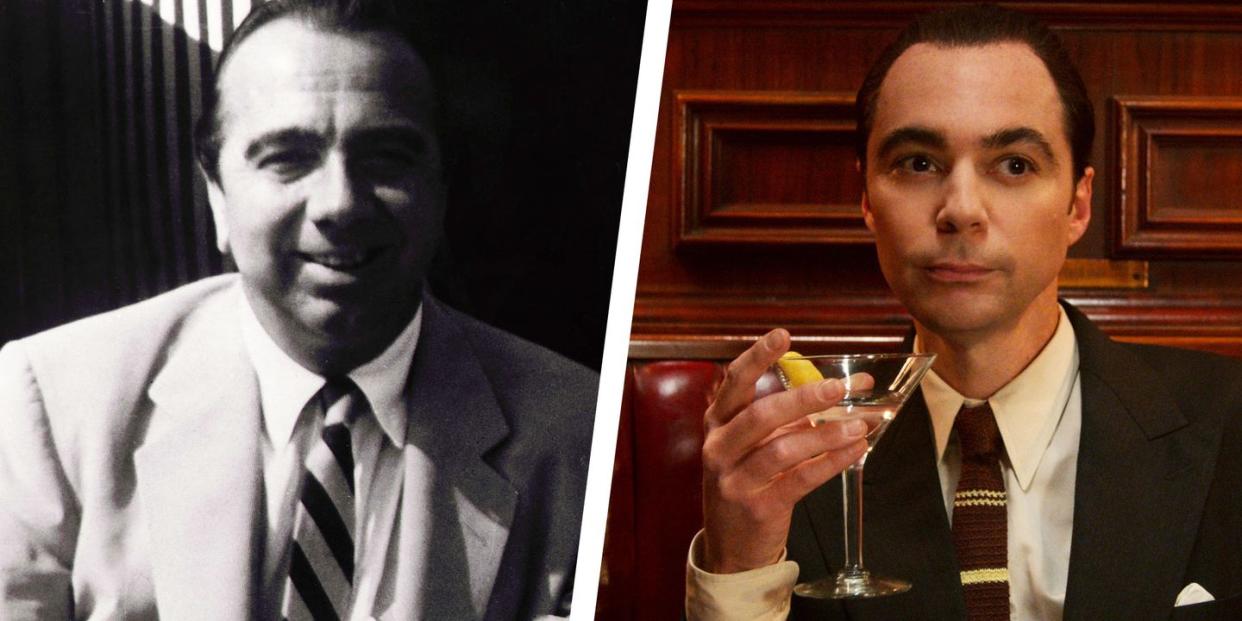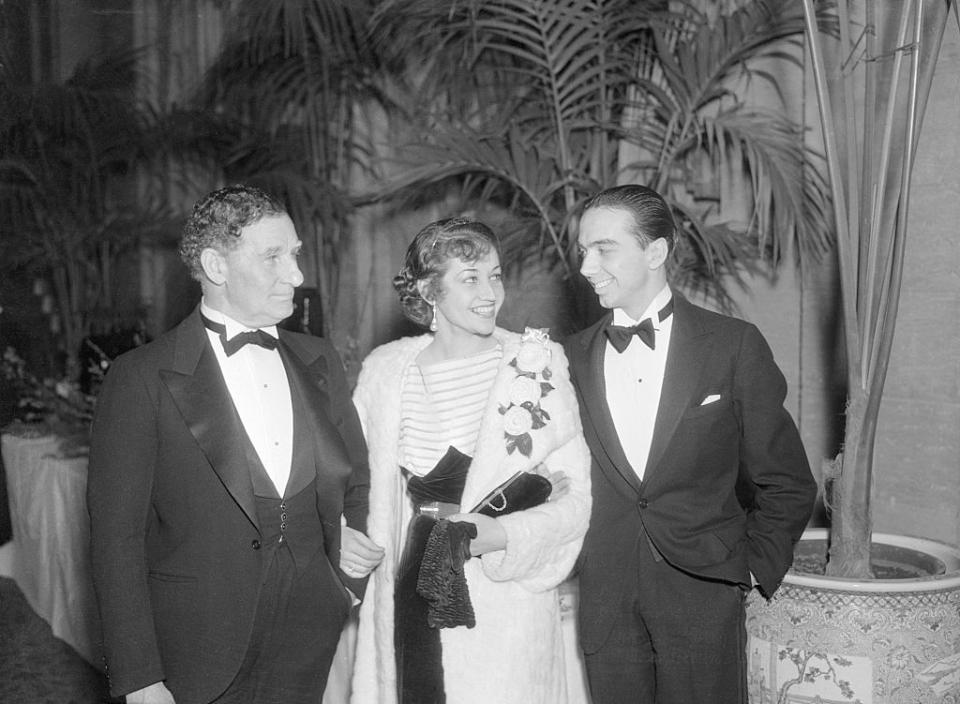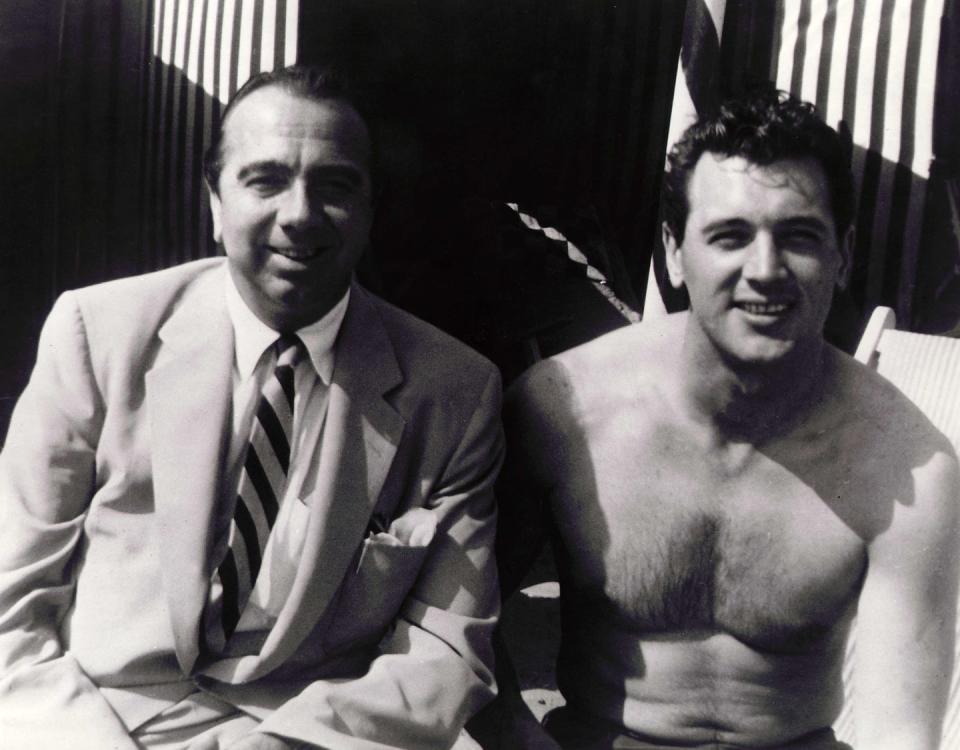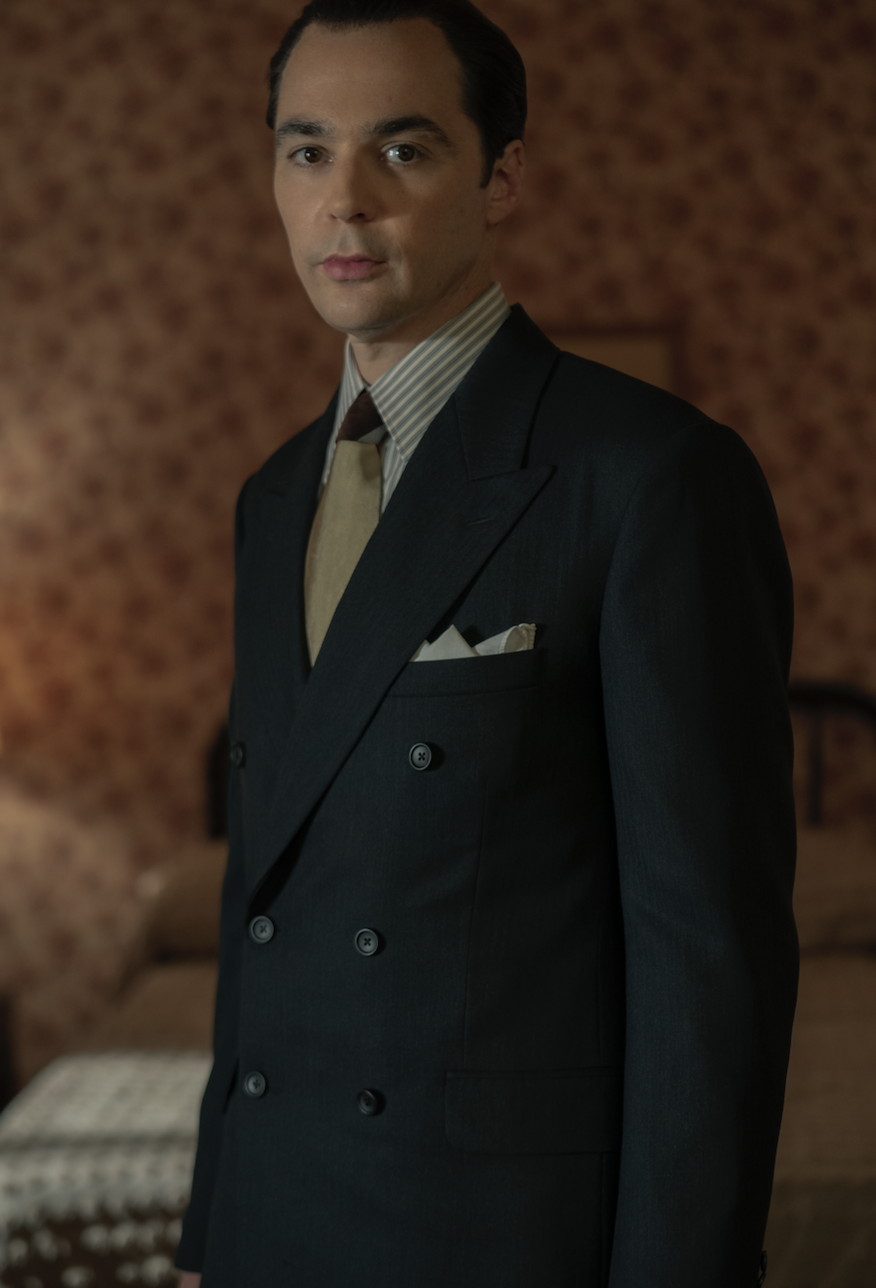The Real-Life Story of 'Hollywood' Agent Henry Willson

Ryan Murphy's new series, Hollywood, takes the elements of his fan-favorite TV shows—stacked cast, super dramatic plot lines, and real-life characters mixed in with fictional ones—and amps them up even more in the spirit of post-WWII Hollywood. And as the history of the movie business frequently was, things were slimy. And the biggest perpetrator of that in Hollywood is Henry Willson, a real-life super agent played in the show by Jim Parsons.
The Netflix series tells the story of a group of aspiring actors and filmmakers in an alternate history version of post-World War II Hollywood as they try to make it in the movie business while also fighting against racism, sexism, and homophobia. However, one of the most intriguing parts of Hollywood are the scenes that feature Parsons as Willson. In the trailer, Parsons' Willson declares that he's "not a star, I'm a star maker," and we later see him berate a newbie actor for not knowing that Vivien Leigh played Scarlett O'Hara in Gone With the Wind. For viewers who best know Parsons for his role in The Big Bang Theory, this is a major change of pace.
Fans want to know more about this larger than life character, and it turns out that Willson's real life was even more intriguing than what's seen on the show.
Who was Henry Willson?
Willson was born on July 31, 1911 in Lansdowne, Pennsylvania. He was raised in a show business family, as his father was the president of the Columbia Phonograph Company, and Willson's proximity to show biz meant that he came into contact with many Broadway and vaudeville performers growing up.
The Willson family later moved to Queens, but Henry was sent to the Asheville School in North Carolina after his father suspected he was gay. However, Willson still remained close to his dad, as Robert Hofler, the author of Willson's biography The Man Who Invented Rock Hudson explains: "To be taken out and sent to N.C. because somebody suspects there’s something wrong about your sexuality must have been devastating. Yet Henry adored his father. If he hated his father he would’ve been better off because he would have taken that punishment and said, 'Fuck you for sending me there.' But he didn’t, and probably on some level accepted that punishment..."
Willson went on to become a journalist, and wrote a weekly column for Variety.
How did Henry Willson meet Rock Hudson?
Willson moved to Hollywood in 1933, and he started out as writer before he became an agent. One of his first clients was Junior Durkin, an actor who's career was tragically cut short by a car accident in 1935. Willson then started working at the Zeppo Marx agency, and his clients included Marjorie Bell, Jon Hall, and William T. Orr. He also helped Lana Turner get her big break.

Willson later started his own agency, which is where he really got his reputation as a star maker. He was directly responsible for the careers of Guy Madison, Ty Hardin, Tab Hunter, Rory Calhoun, and Rock Hudson, his most famous client. Willson would look for unexperienced, attractive young men (hence the "beefcake" craze 0f the 1950's), and he often renamed his clients—just like Hollywood depicts, Hudson was actually born Roy Scherer.
Mark Griffin, author of the Rock Hudson biography All That Heaven Allows, told NPR how Willson would shape his clients into stars: "It was Henry Willson who not only discovered Rock but kind of cultivated this whole matinee idol image for him. And there was a lot of reconditioning that happened. You know, his—they got him voice lessons with a former opera singer. And you know, I think there was a fair amount of butching him up so that he seemed matinee idol ready."

While Willson's sexuality was an open secret in Hollywood, the film business was still largely homophobic, and Willson reportedly pushed Hudson, who was also gay, to go on dates with women. Willson did the same, and he often escorted actresses to Hollywood premieres and parties. However, there were still rumors that Willson had sexual relationships with many of his clients, but its unclear if they were willing participants or if they were coerced, as seen in Murphy's Hollywood series.
In 1955, another situation often seen in Murphy's show occurred: Confidential magazine planned to publish an exposé on Hudson, and Willson threw two of his other clients under the bus to save him. Griffin explains:
"Rock, at that point, was close to becoming one of the No. 1 box office attractions in the world and was certainly Henry Willson's most important client. And as the story goes, he may have sacrificed both one of his current clients, Rory Calhoun, and a former client, Tab Hunter. There was suddenly a cover story that exposed the fact that Rory Calhoun had served time, that he had been an ex-con and had been involved with an armed robbery...then just a few months later was another exposé, this one probably more damning. And it was about Tab Hunter - the late Tab Hunter, who, incidentally, had fired Henry just a few months prior to this article appearing. And in this particular exposé, they wrote that Tab had been involved in sort of an all-male pajama party that had been broken up by the police.Do we have 100 percent certainty that that's exactly what happened? No. But I think we can make some pretty good educated guesses that that's exactly what happened in this instance. And the timing, particularly with Tab Hunter firing Henry Willson just a few months prior, would lead us to pretty certainly believe that that's exactly how it played out."
It's also rumored that Willson helped set up Hudson's marriage to his secretary, Phyllis Gates.
Where is Henry Willson now?
Willson reportedly struggled with alcoholism in his later years, and many of his former clients distanced themselves from him after his sexual orientation became public knowledge, and as the film business moved on from the studio system.
In 1974, Willson moved into the Motion Picture & Television Country House and Hospital, a retirement community in Woodland Hills, California. He died of cirrhosis of the liver in 1978, at age 67. Willson was originally buried in an unmarked grave in Valhalla Memorial Park Cemetery, but a headstone that read "Star - Star Maker," was later placed.

You Might Also Like

